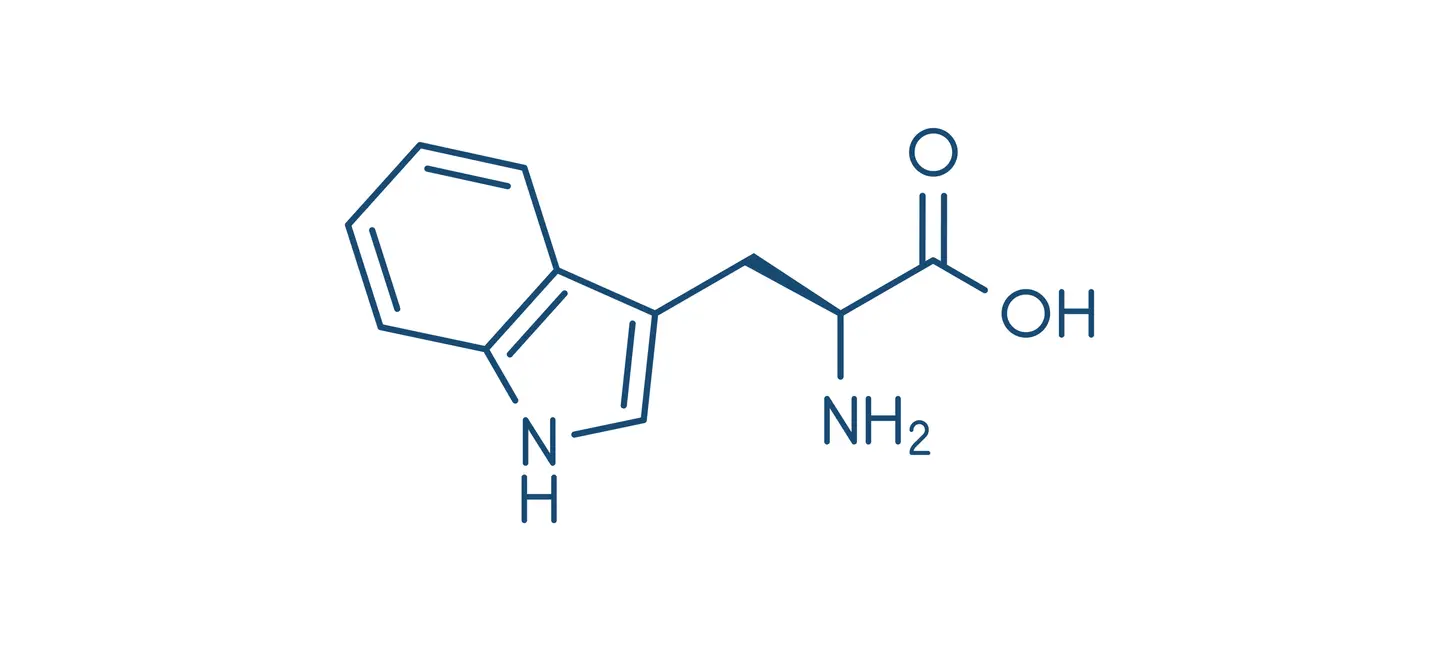
L-Tryptophan is an essential amino acid that is necessary for making proteins. It is naturally found in red meat, poultry, eggs, and dairy.
L-tryptophan is important for many organs in the body. L-tryptophan is not made by the body and must be consumed from the diet. After absorbing L-tryptophan from food, the body converts some of it to 5-HTP and then to serotonin. Serotonin is a hormone that transmits signals between nerve cells. Changes in serotonin levels in the brain can affect mood.
People use L-tryptophan for severe PMS symptoms, depression, insomnia, and many other conditions, but there is no good scientific evidence to support any of these uses.
Is It Effective?
NatMed Pro rates effectiveness based on scientific evidence according to the following scale: Effective, Likely Effective, Possibly Effective, Possibly Ineffective, Likely Ineffective, Ineffective, and Insufficient Evidence to Rate.
- Depression. Taking L-tryptophan by mouth doesn't seem to be beneficial in patients with depression. Also, it may increase the risk of side effects of some medications.
There is interest in using L-tryptophan for a number of other purposes, but there isn't enough reliable information to say whether it might be helpful.
Is it Safe?
When taken by mouth: L-tryptophan occurs naturally in many foods, and is consumed as part of the diet. L-tryptophan supplements are possibly safe when taken for up to 3 weeks. L-tryptophan can cause some side effects such as drowsiness, stomach pain, vomiting, diarrhea, headache, blurry vision, and others.
In 1989, L-tryptophan was linked to cases of a neurological condition called eosinophilia-myalgia syndrome (EMS). But these cases might be due to contamination. About 95% of all EMS cases have been traced to L-tryptophan produced by a single manufacturer in Japan.
There isn't enough reliable information to know if L-tryptophan is safe when taken for more than 3 weeks.
Special Precautions & Warnings:
Pregnancy: It is possibly unsafe to take L-tryptophan in amounts greater than those found in foods during pregnancy. It might harm the unborn child.
Breast-feeding: There isn't enough reliable information to know if L-tryptophan is safe to use when breast-feeding. Stay on the safe side and stick to food amounts.
Sedative medications (CNS depressants)
Interaction Rating=Major Do not take this combination.
L-tryptophan might cause sleepiness and slowed breathing. Some medications, called sedatives, can also cause sleepiness and slowed breathing. Taking L-tryptophan with sedative medications might cause breathing problems and/or too much sleepiness.
Serotonergic drugs
Interaction Rating=Moderate Be cautious with this combination.
L-tryptophan might increase a brain chemical called serotonin. Some medications also have this effect. Taking L-tryptophan along with these medications might increase serotonin too much. This might cause serious side effects including heart problems, seizures, and vomiting.
Herbs and supplements with sedative properties: L-tryptophan might cause sleepiness and slowed breathing. Taking it along with other supplements with similar effects might cause too much sleepiness and/or slowed breathing in some people. Examples of supplements with this effect include hops, kava, melatonin, and valerian.
Herbs and supplements with serotonergic properties: L-tryptophan increases a brain chemical called serotonin. Taking it along with other supplements that have this effect might cause serious side effects, including heart problems, seizures, and vomiting. Examples of supplements with this effect include 5-HTP, black seed, SAMe, and St. John's wort.
There are no known interactions with foods.
L-tryptophan supplements have most often been used by adults in doses of 60 mg by mouth daily for 16 weeks. Speak with a healthcare provider to find out what dose might be best for a specific condition.
Keep in mind that some dietary supplement products might not list L-tryptophan separately on the label. Instead, it might be listed under niacin. Niacin is measured in niacin equivalents (NE). 60 mg of L-tryptophan is the same as 1 mg NE.
L-Triptofano, L-Trypt, L-2-amino-3-(indole-3-yl) propionic acid, L-Tryptophane, Tryptophan.
Information on this website is for informational use only and is not intended to replace professional medical advice, diagnosis, or treatment. While evidence-based, it is not guaranteed to be error-free and is not intended to meet any particular user’s needs or requirements or to cover all possible uses, safety concerns, interactions, outcomes, or adverse effects. Always check with your doctor or other medical professional before making healthcare decisions (including taking any medication) and do not delay or disregard seeking medical advice or treatment based on any information displayed on this website.
© TRC Healthcare 2024. All rights reserved. Use and/or distribution is permitted only pursuant to a valid license or other permission from TRC Healthcare.
